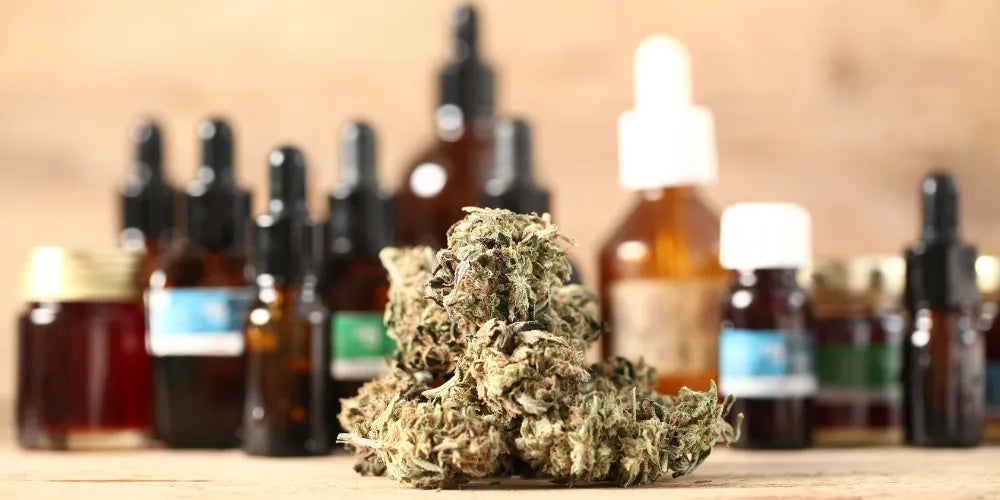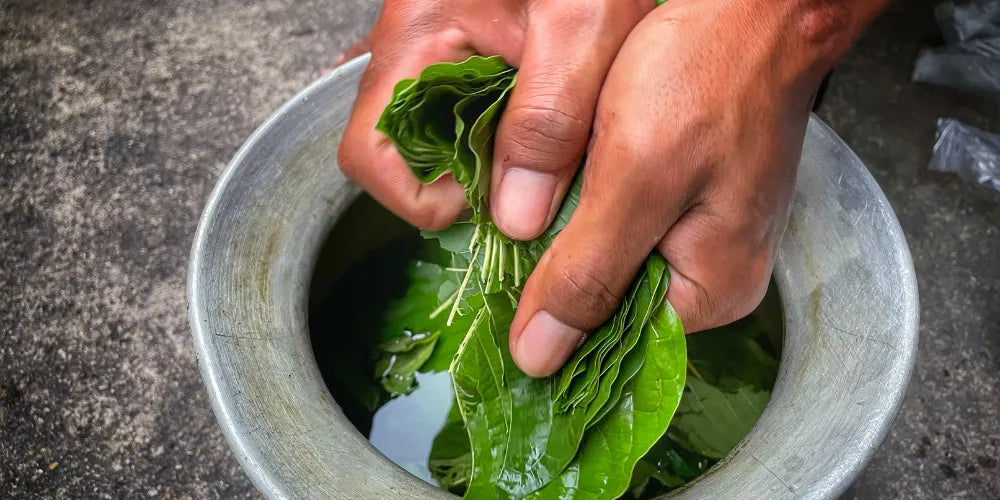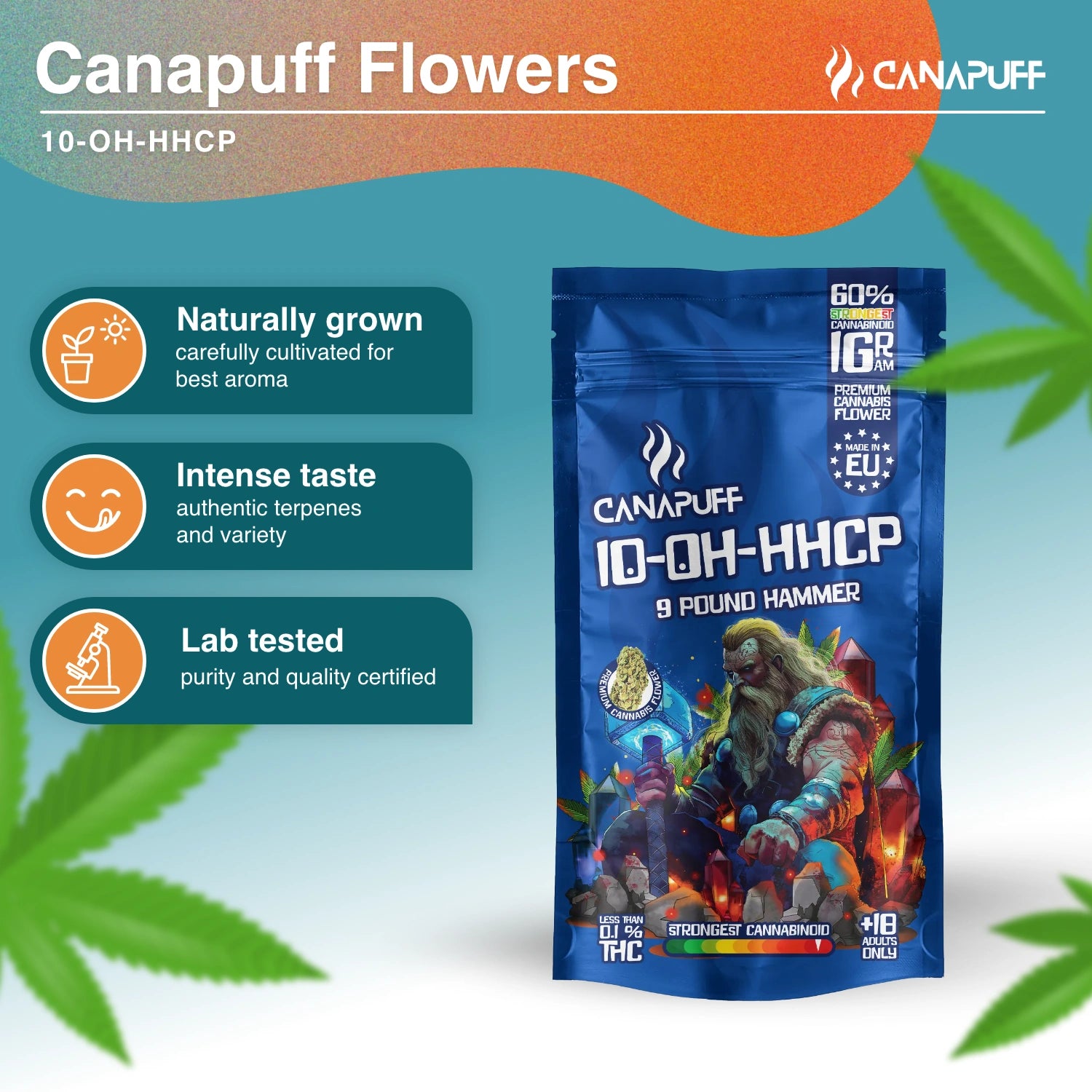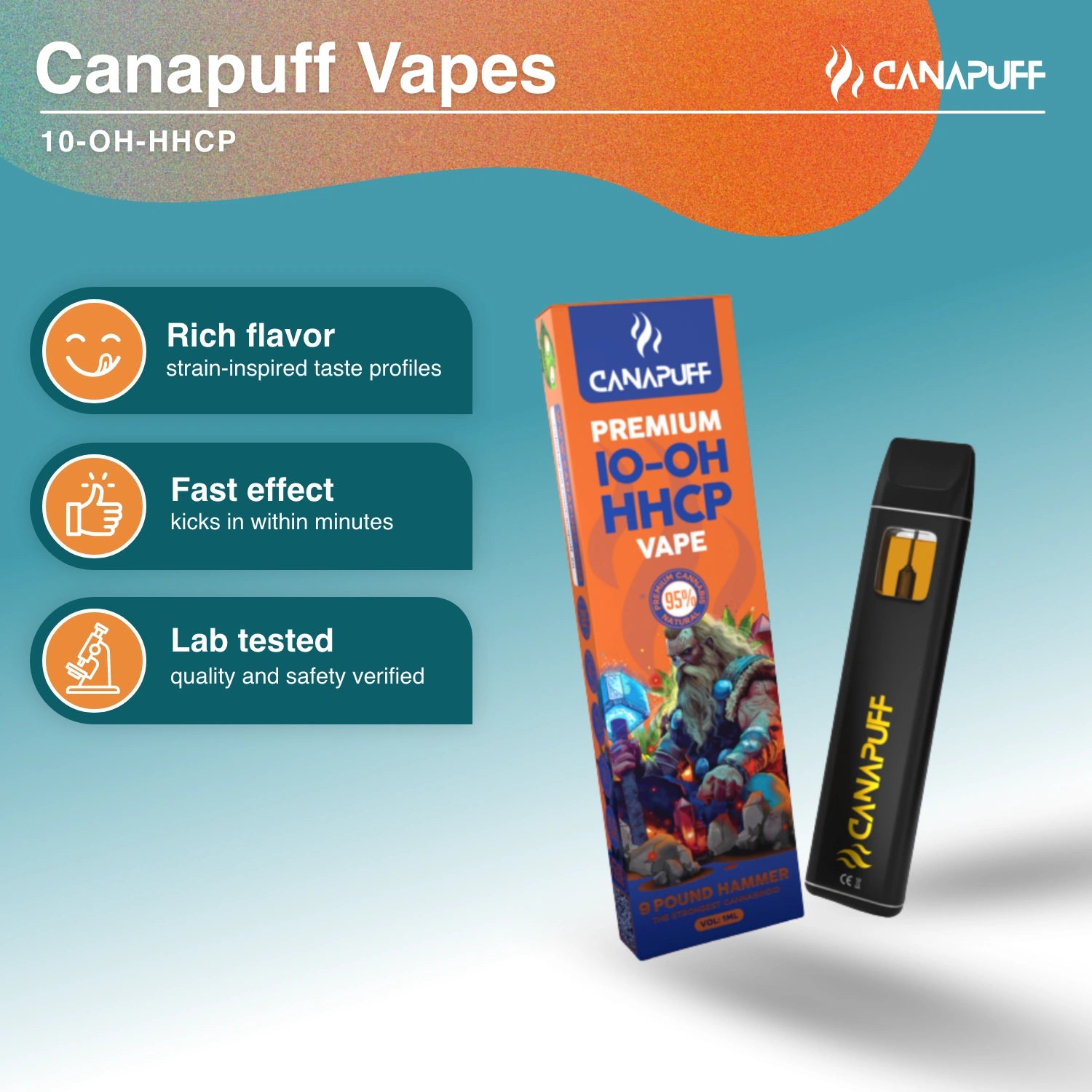Table of contents
- Understanding Autoflower Seeds
- Autoflower Cannabis Benefits
- Types of Growth Spaces for Autoflower Cannabis
- The Best Autoflower Seeds for Growth Space Types
- Setting Up Your Grow Space
- Essential Tools and Equipment
- Germinating Your Autoflower Seeds
- Growing and Maintenance
- Harvesting and Curing
- Tips to Increase Product Yield
- Final Thoughts
Growing autoflower seeds can be a rewarding experience.
Many home growers prefer to cultivate seeds from scratch. It’s compact, easy to grow, and larger yield makes it a great source for personal use.
Patients who use it for medicinal purposes prefer these to make sure they have a steady supply.
The rapid growth cycle also lets you harvest as many as you like within the year.
But what does it take to grow autoflower seeds in your home? And what risks does it come with?
Let’s find out.
Understanding Autoflower Seeds
Autoflower seeds are a type of cannabis seed that grows from the vegetative stage to flowering stage automatically.
Unlike other strains, these grow without needing changes in light cycles. Because of this, they are a crowd favorite among beginner cannabis enthusiast.
It’s straightforward and offers a simple and quick growth cycle. It also makes this variant more resilient to varying conditions compared to photoperiod strains.
Autoflower cannabis usually remain small and compact. It can be discreet and grown indoors or small outdoor spaces.
It’s perfect for growers with limited space or want to keep their cultivation low-profile.
They adapt well to different environments. Varying climate conditions also don’t affect their yield so much.
Autoflower Cannabis Benefits
Breeding advancements also help autoflower strains produce high quality cannabis. This makes it a reliable choice for personal and commercial growers.
Autoflower seeds usually complete their growth cycle in eight to twelve weeks. Because of fast turnaround times, growers prefer them over photoperiod strains.
It also ensures multiple harvests and a steady supply per year. This is crucial for those who depend on cannabis for medical treatments.
This strain also has less light requirements. The reduced lighting systems and maintenance requirements make them a cost-effective choice.
It also shows greater resilience to pests, diseases, and other environmental stressors.
Because they don’t need pesticides or other chemical treatments, it also makes a much healthier option.
They also respond well to growing techniques like low-stress training and sea of green methods.
But don’t let these things fool you into thinking that their variant isn’t good.
These autoflower strains are comparable in potency and flavor to their counterparts.
The best part is you can also cross strains to create new hybrids and get your desired traits in both types.
Types of Growth Spaces for Autoflower Cannabis
It’s important to choose the one that fits your preference and growing environments.
Most people don’t have the luxury of wide, open spaces or backyard gardens in their homes.
If you’re lucky, you’ll have a balcony, a terrace, or a windowsill for your plants.
That’s why you also need to consider your current capabilities in choosing the right strains.
The good thing is, there are several ways you can maximize cannabis growth no matter what your space is.
Indoor growth rooms are perfect for regions with colder climates. You can use growth tents with reflective interiors to maximize light efficiency.
Larger indoor spaces can also be converted into dedicated grow rooms.
These can include advanced ventilation and lighting systems. You can also add climate control equipments to create optimal growth conditions.
Greenhouses are great if you have access to an ample amount of sunlight. You can choose either polycarbonate or glass greenhouses for a more stable environment.
Hydroponic systems are also gaining popularity. This soilless method are great for indoor or greenhouse use.
Two types of hydroponic systems include deep water culture or ebb and flow systems.
In deep water culture, plants grow in a nutrient-rich water solution. The roots are suspended in water so you don’t have to worry about rot.
Ebb and flow systems involve flood and drain trays. It is efficient and can also be automated.
The Best Autoflower Seeds for Growth Space Types

Here are some top autoflower strains that are well-suited for different types of grow spaces commonly used in Europe:
Indoor Grow Rooms
Indoor growing requires strains that can thrive under controlled conditions and often in limited space.
Auto Northern Light: Known for its resilience and high yield, this strain is perfect for indoor growing. It has a compact structure and produces dense, resinous buds.
- Auto White Widow: This strain is a favorite among indoor growers for its high THC content and ease of growth. It’s robust and resistant to common pests and mold.
- Auto Blueberry: Ideal for smaller indoor spaces, this strain has a short stature and delivers a sweet, berry aroma with potent effects.
Greenhouses
Greenhouses combine natural sunlight with controlled conditions, allowing for robust growth.
- Auto Gorilla Glue: This strain thrives in greenhouse environments, producing large, potent buds. It benefits from the controlled conditions and abundant sunlight.
- Auto Amnesia Haze: Known for its high yield and energetic high, this strain does well in greenhouses, where it can receive ample light and space to flourish.
- Auto Critical: A fast-flowering strain that is easy to grow, making it ideal for greenhouse setups. It offers a good balance of potency and yield.
Outdoor Gardens
Outdoor growing requires hardy strains that can withstand the elements and potentially less-than-ideal conditions.
- Auto AK-47: This strain is renowned for its resilience and ability to thrive in outdoor conditions. It’s known for producing high-quality buds with strong effects.
- Auto Super Skunk: Great for outdoor gardens, this strain is easy to grow and resistant to pests and diseases, making it a reliable choice for novice growers.
- Auto Jack Herer: This versatile strain performs well outdoors, delivering a good yield of potent, resin-coated buds.
Balconies and Terraces
Balcony and terrace growing benefit from compact, discreet strains that can handle variable light conditions.
- Auto Cheese: Compact and aromatic, this strain is perfect for balcony gardens. It’s easy to manage and offers a strong, relaxing high.
- Auto Pineapple Express: A small but productive strain, ideal for terrace growing. It provides a tropical aroma and uplifting effects.
- Auto Bubblegum: This strain remains short and bushy, making it perfect for limited space. It offers a sweet flavor and balanced effects.
Hydroponic Systems
Hydroponic growing benefits from strains that can thrive in nutrient-rich, soilless environments.
- Auto Lemon Skunk: Performs exceptionally well in hydroponic systems, producing vibrant, citrus-flavored buds.
- Auto Sour Diesel: Known for its robust growth and high yield in hydroponics, this strain delivers strong, energizing effects.
- Auto Purple Kush: A strain that thrives in hydroponic setups, offering beautiful purple buds and a relaxing, sedative experience
Setting Up Your Grow Space
For indoor growing, you'll need to grow lights (LEDs are recommended), proper ventilation, and a grow tent.
Maintain a light schedule of 18-24 hours during the vegetative stage. Then you can transition to 12-18 hours for flowering.
Outdoor growing requires choosing a spot with ample sunlight. This is at least 5-6 hours of direct sunlight per day. Make sure the area is protected from extreme weather and pests.
Essential equipment includes LED or CFL grow lights for consistent light quality.
You also need fans, and exhaust systems ventilation. Grow tents can be used to control the environment and maximize space.
Choose well-draining pots with high-quality soil for root health.
Autoflowers thrive in temperatures between 70-85°F or 21-27°C. Consider using greenhouses or indoor setups for better temperature maintenance.
It’s also best to maintain a humidity level of 50-70% during vegetative state. Then you can lower it to 40-50% during flowering.
Doing this will lessen the chances of mold and mildew from developing.
Essential Tools and Equipment
Here are some of the best tools and equipment you can use for growing seeds.
|
Tool/Equipment |
Description |
Examples |
|
Grow Lights |
Provide consistent light quality essential for plant growth. LED lights are energy-efficient and long-lasting, while CFL lights are more affordable. |
- LED: Spider Farmer SF-2000, Viparspectra XS2000, Mars Hydro TS 1000<br>- CFL: Hydrofarm Agrobrite FLT44, Durolux T5 Grow Light |
|
Ventilation |
Ensures proper airflow to maintain temperature and humidity, preventing mold and mildew. Includes fans and exhaust systems. |
- Fans: AC Infinity Cloudline T6, VIVOSUN Inline Duct Fan<br>- Exhaust Systems: iPower 4 Inch Carbon Filter and Inline Fan Combo |
|
Grow Tent |
Creates a controlled environment and maximizes space utilization, often with reflective interiors to enhance light efficiency. |
- VIVOSUN Mylar Grow Tent, Gorilla Grow Tent, Mars Hydro Grow Tent |
|
Pots and Soil |
Well-draining pots and high-quality soil are crucial for root health and overall plant growth. |
- Pots: Smart Pots Fabric Planters, VIVOSUN 5 Gallon Grow Bags<br>- Soil: FoxFarm Ocean Forest, Roots Organics Original Potting Soil |
|
pH Meter |
Monitors soil and water pH levels to ensure optimal nutrient uptake and plant health. |
- Apera Instruments AI209, VIVOSUN pH and TDS Meter Combo, Bluelab pH Pen |
|
Nutrient Solutions |
Balanced nutrients tailored for both vegetative and flowering stages of growth to support healthy plant development. |
- Vegetative Stage: General Hydroponics FloraGrow, FoxFarm Grow Big<br>- Flowering Stage: Advanced Nutrients Bloom, FoxFarm Tiger Bloom |
|
Pruning Tools |
Used for trimming and shaping plants, helping to improve airflow and light penetration to the lower parts of the plant. |
- Fiskars SoftGrip Micro-Tip Pruning Snips, VIVOSUN Gardening Hand Pruner, Corona BP 3180D Forged Classic Bypass Pruner |
|
Greenhouses |
Extends the growing season and protects plants from extreme weather, suitable for outdoor growers in various climates. |
- Polycarbonate: Palram HG5508 Hybrid Greenhouse, Rion Grand Gardener<br>- Glass: Juliana Premium Greenhouse, Eden Bourton Greenhouse |
Germinating Your Autoflower Seeds
The germination process starts with soaking your autoflower seeds in a glass of distilled water for 24-48 hours until they sink.
After soaking, transfer the seeds to a damp paper towel, fold them over them, and place them in a zip-lock bag.
Keep the bag in a warm, dark place (around 70-85°F) and monitor daily.
Once you see roots emerging (usually within 1-4 days), transfer the seeds to your growing medium.
Alternatively, you can plant seeds directly into the soil, keeping it moist, or use starter plugs to simplify the process.
Read more about mastering autoflower cannabis growth here.
Growing and Maintenance
Planting autoflower seeds involves using high-quality, well-draining soil.
Start with a light nutrient mix suitable for seedlings. Avoid heavy fertilized soil.
Keep the soil moist but not waterlogged to prevent root rot.
Gradually increase nutrient levels using a balanced mix during the vegetative stage. You can start transitioning to a bloom-specific mix during flowering.
Consistent light is crucial, especially for indoor growth.
Humidity levels should be around 50-70% during the vegetative stage and lowered to 40-50% during flowering.
Techniques such as Low-Stress Training (LST) and defoliation can help increase light exposure and improve airflow and light penetration
Harvesting and Curing
The key to maximizing quality is to know when to harvest your cannabis.
Look for signs of maturity in your flowers. Pistils usually start turning from white to brown when they’re mature enough. Trichomes also change from clear to milky or amber.
When they’re ready, flush your plants with plain water to remove excess nutrients.
Cut the plant at the base and trim the large fan leaves to harves.
Hang the branches upside down in a dark, well-ventilated space for seven to ten days to dry.
Once dried, trim the buds and place them in airtight jars for curing.
Store the jars in a cool, dark place and open them daily for the first week to release moisture.
Ensuring a humidity level of 45-55% during drying and burping jars daily for the first week during curing helps prevent mold and ensures a quality product.
Tips to Increase Product Yield
Increasing product yield when growing autoflower cannabis involves optimizing various aspects of the cultivation process.
Here are some tips to help maximize your harvest.
Choose High-Yielding Strains
Start with genetics that are known for high yields. Strains like Auto Northern Light, Auto Critical, and Auto Big Bud are renowned for their prolific harvests.
Optimize Light Conditions
Light is crucial for cannabis growth. Ensure your plants receive adequate light by using high-quality grow lights like LED or HPS.
Use Proper Nutrients
Feeding your plants the right nutrients at the right times can significantly impact yield. Avoid overfeeding, as it can cause nutrient burn.

Maintain Ideal Environmental Conditions
Keep your grow space within optimal temperature and humidity ranges. Use fans and dehumidifiers to maintain these conditions.
Practice Low-Stress Training (LST)
LST involves gently bending and tying down the branches of your plants to create an even canopy.
This technique increases light penetration and airflow. It also promotes healthier growth and higher yields.
Defoliate Strategically
Removing some of the larger fan leaves can improve light penetration and air circulation within the canopy.
Be cautious not to over-defoliate, as leaves are essential for photosynthesis.
Use Quality Soil and Pots
High-quality, well-draining soil is essential for root health.
Use fabric pots or air pots to promote better root development and oxygenation. This can lead to more vigorous plant growth and higher yields.
Monitor pH Levels
Keep he pH of your soil and water within the optimal range (6.0-6.5 for soil) so that your plants can absorb nutrients efficiently.
Use a pH meter to regularly check and adjust the pH levels as needed.
Implement a Regular Watering Schedule
Water your plants consistently but avoid overwatering. Overwatering can lead to root rot and other issues that can negatively affect yield.
Prevent and Manage Pests and Diseases
Regularly inspect your plants for signs of pests and diseases. Use preventive measures like neem oil or insecticidal soap and ensure your grow space is clean.
Extend the Vegetative Stage
Although autoflowers have a set lifecycle, some growers extend the vegetative stage by providing more light (up to 24 hours a day).
This can sometimes lead to larger plants and higher yields, but it requires careful management to avoid stressing the plants.
Harvest at the Right Time
Harvesting at the peak of ripeness ensures you get the most potent and abundant yield.
Look for trichomes turning milky with some amber, and pistils that are mostly brown and receded.
Implementing these tips can help you maximize your autoflower cannabis yield.
Final Thoughts
Growing autoflower seeds can be enjoyable, even for beginners.
By choosing the right strain, setting up an ideal grow space, and following proper germination techniques, you can achieve a successful harvest.














Leave a comment
This site is protected by hCaptcha and the hCaptcha Privacy Policy and Terms of Service apply.